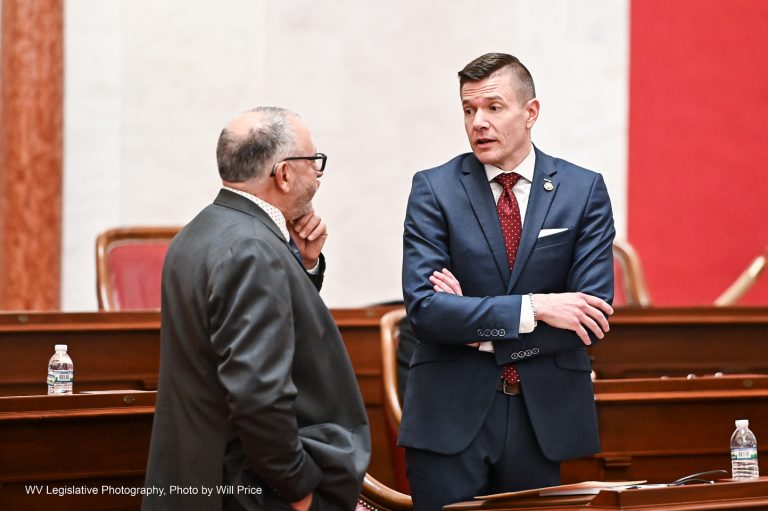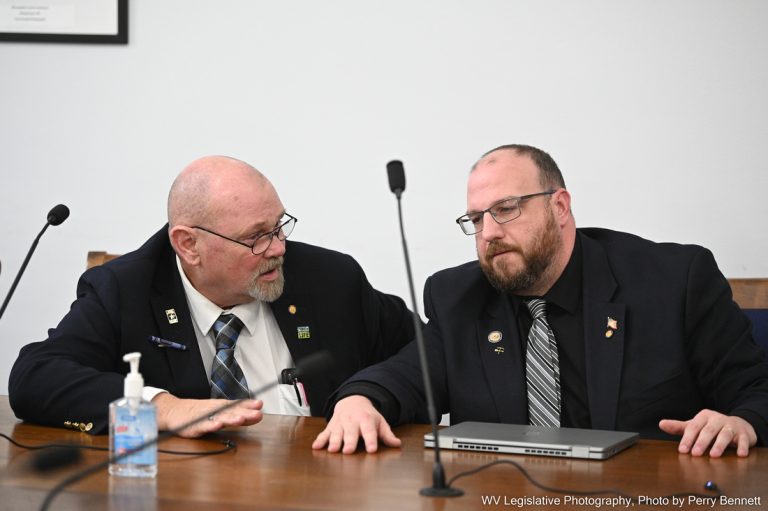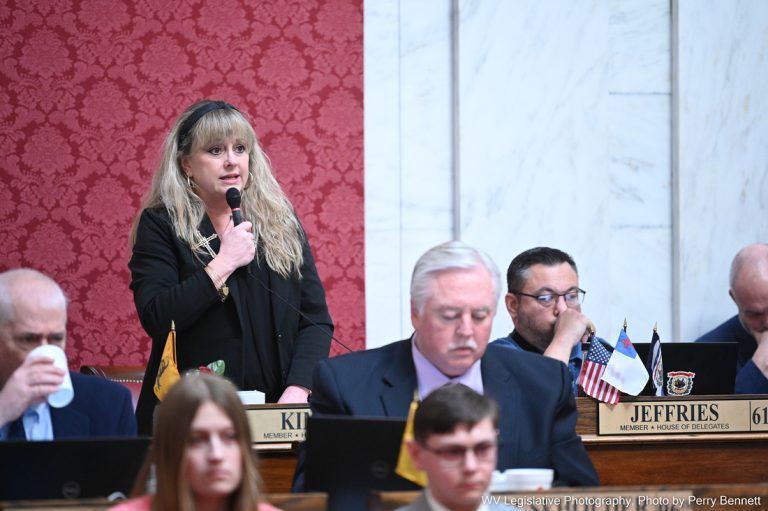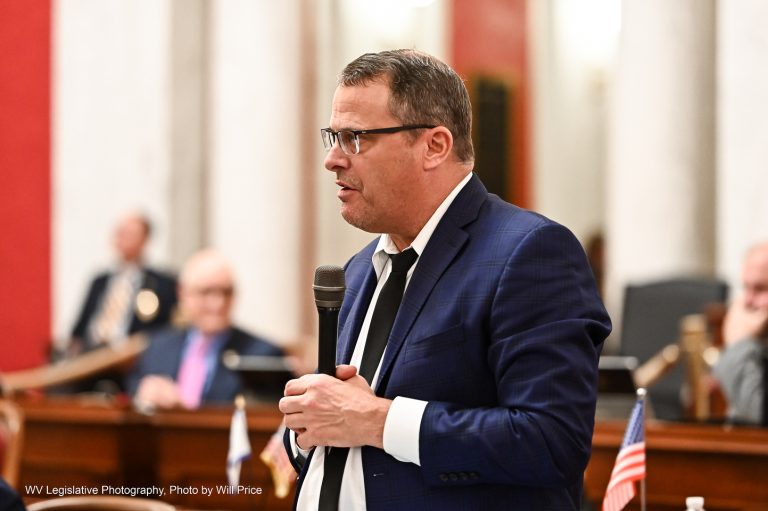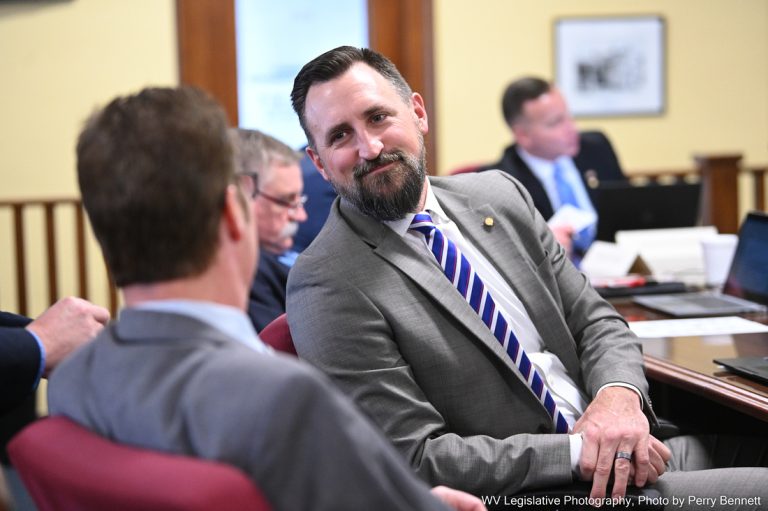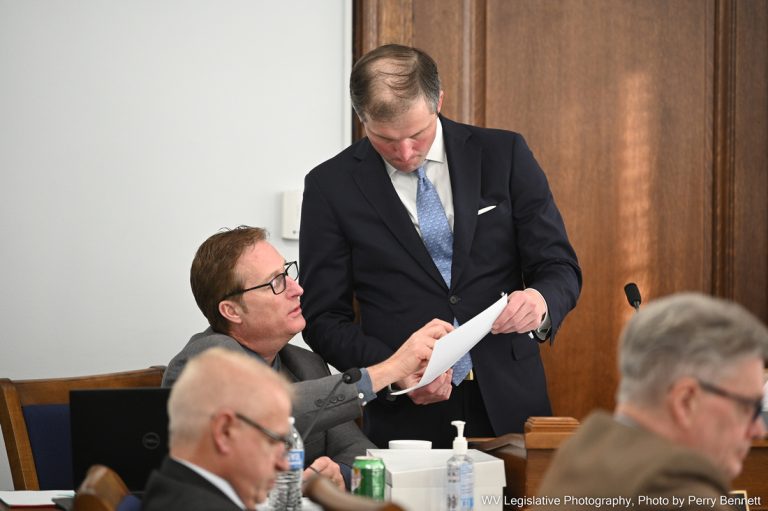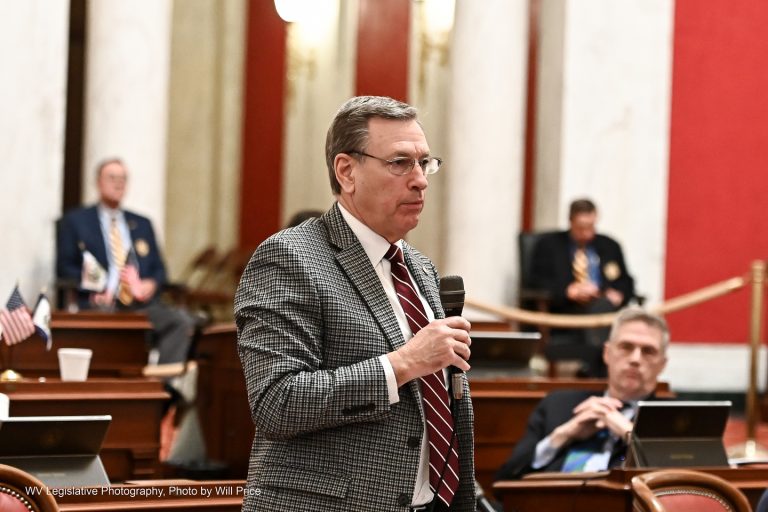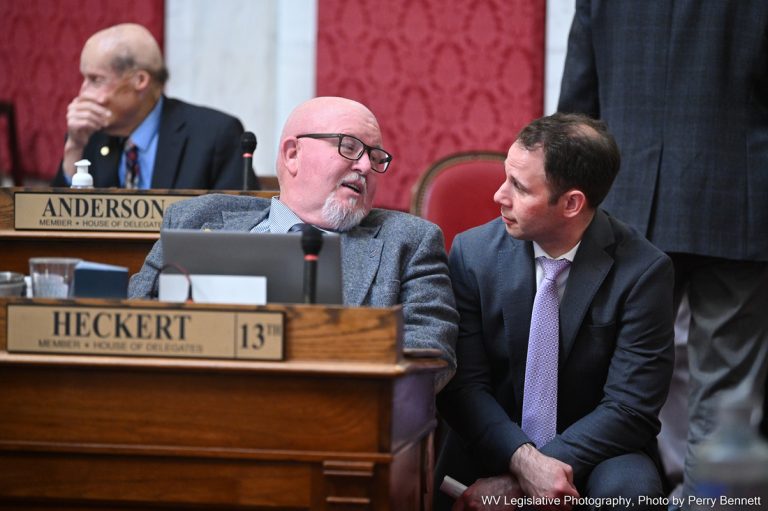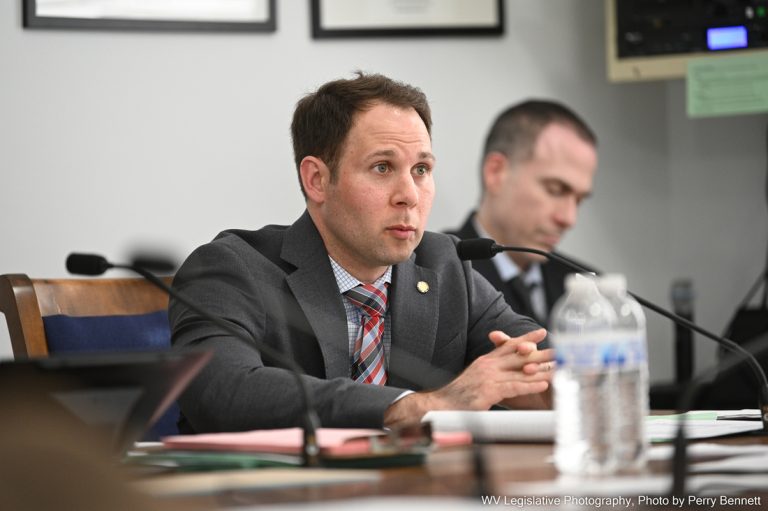The House briefly met this morning, passing House Bill 2937 and House Bill 3233.
House Bill 2937 reduces the amount paid to the Tax Commissioner for the annual licensure fees to volunteer fire departments for charitable raffles.
House Bill 3233 increases the uniform allowances for members of the National Guard to $500. The bill also allows any member requiring specialty uniforms to request a reimbursement for procuring the uniforms.
During Senate Messages, the House concurred to complete legislative action on House Bill 2596, House Bill 3055, and House Bill 3272.
House Bill 2596 denies transfers to other schools by students who are suspended or expelled from a school for certain conduct, amend the county board of education’s policies, and modifies the appeals process for transferring students.
House Bill 3055 establishes technical transitional math for students interested in careers in trades. The bill allows the math course to be used to fulfill graduation requirements.
House Bill 3272 allows for the formation and operation of licensed and unlicensed private trust companies under West Virginia law.
After the bills on second reading, the House heard announcements and remarks by members.
The House is in recess until 6 p.m.
Committee Meetings, Today
- The Finance Committee will meet at 1 p.m. in Room 460.
- The Judiciary Committee will meet at 1 p.m. in Room 410.
- The Education Committee will meet at 2 p.m. in Room 432.
- The Committee on Government Organization will meet at 3:45 p.m. in Room 215E.
- The Rules Committee will meet at 5:45 p.m. behind the Chamber.
Committee Meetings, Tomorrow, Feb. 23
- The Committee on Banking and Insurance will meet at 9 a.m. in Room 410.
- The Rules Committee will meet at 10:45 a.m. behind the House Chamber.
- The Committee on Technology and Infrastructure will meet at 1 p.m. in Room 432.
- The Committee on Energy and Manufacturing will meet at 1 p.m. in Room 410.
- The Committee on Economic Development and Tourism will meet at 3 p.m. in Room 460.
- The Finance Committee will meet at 4 p.m. in Room 460.
- The Committee on Government Organization will meet at 5 p.m. in Room 215E.
The Judiciary Committee will hold a public hearing on Friday, Feb. 24 at 4 p.m. in the House Chamber on HB 3042 – Relating to forbidding excessive government limitations on exercise of religion.
The Committee on Energy and Manufacturing will hold a public hearing on Monday, Feb. 27 at 9 a.m. in the House Chamber on HB 3446 – Clarifying the powers and duties of Public Service Commission as to electric generating facilities.
The House reconvened at 6 p.m.
The House Rules Committee moved Senate Bills 160, 246, and 463, along with House Bills 2189, 3509, 2511, 3512, 3513, 3514, 3515, 3516, 3517, 3518 & 3524 to the (inactive) House Calendar. The Committee also moved House Bills 2827, 3353, 3387, 3391, and 3431 to the Special Calendar on Second Reading.
The bills moved to the Special Calendar were read for a second time. Three amendments were offered on House Bill 3353, however only one was adopted.
House Bill 3353 limits state agencies from forming financial relationships that will benefit foreign entities that have values antithetical to those of the State of West Virginia.
The Rules Committee met again following session and moved the following to the Special Calendar: on third, House Bills 2538, 2607, 2917, 3005, 3110, 3148, 3376, and 3441; on first reading, 2016, 2483, 2567, 2648, 2759, 2760, 3013, 3059, 3214, 3274, 3341, 3398, 3409, 3444, 3450, 3459, 3473, 3479, 3482, 3484, 3487, 3493, 3552, and 3554.
The House is adjourned until 11 a.m. on tomorrow, Feb. 23.


